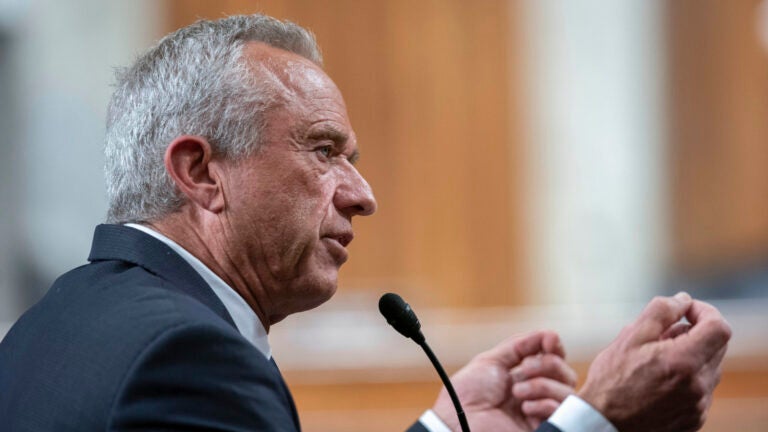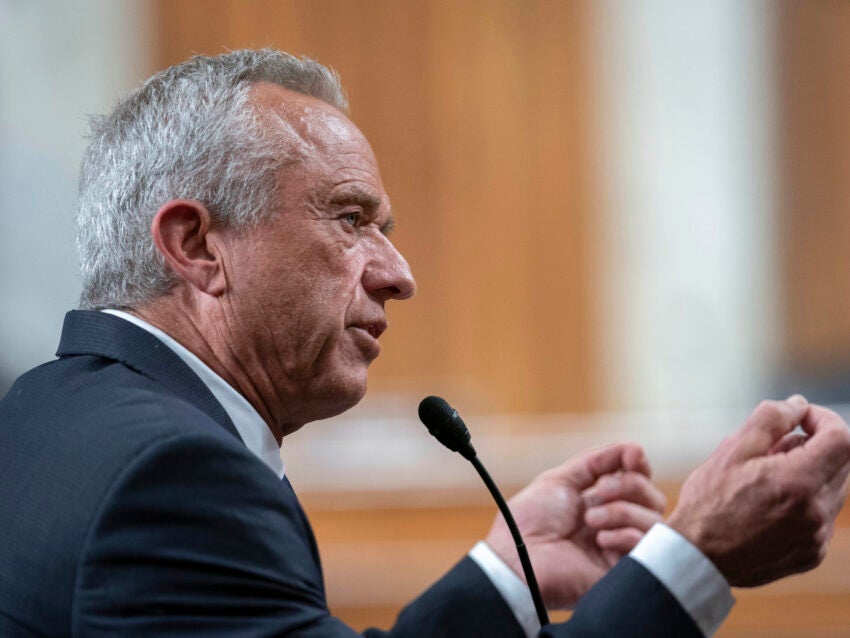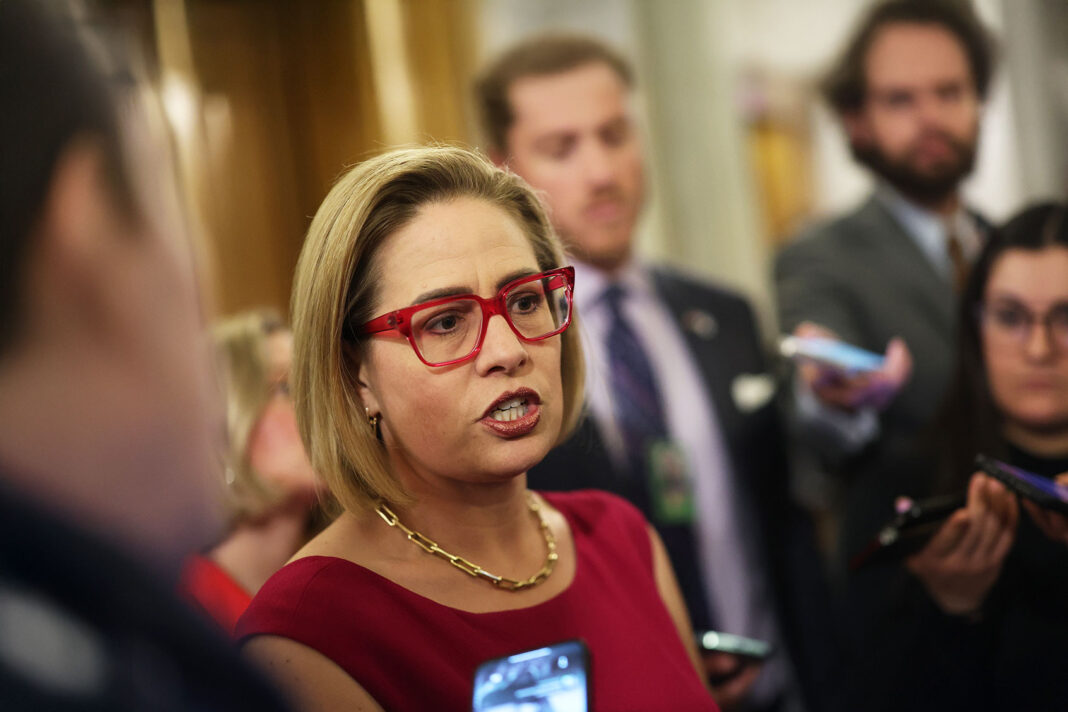Politics
Some Massachusetts health experts expressed worries about Robert F. Kennedy Jr.’s potential appointment following his Senate hearing.

Robert F. Kennedy Jr. spoke to the U.S. Senate Wednesday for his first confirmation hearing as President Donald Trump‘s pick for Secretary of Health and Human Services.
Some Massachusetts health experts expressed worries about his potential appointment.
Kennedy said in his opening statement to senators that he is “pro-vaccine” and that vaccines serve a “critical role” in health care. While he has maintained this position since his bid for the presidency, Kennedy has expressed opposition to several different vaccines in the past.
“Just speaking about my day-to-day as a primary care physician, trying to convince individual patients to accept individual vaccines when the world that we live in is not repeatedly affirming the importance of them, it becomes a battle,” said Lara Jirmanus, an instructor of medicine at Harvard Medical School and a practicing family physician.
RFK Jr.
Jirmanus, who advocates for underserved populations that face unequal access to health care, said she is worried about the “anti-science focus” of the incoming administration.
The COVID-19 pandemic ushered in a surge of vaccine skepticism, including from Kennedy, who pushed the discredited idea that the virus “ethnically targeted” white and Black people and spared Ashkenazi Jewish and Chinese people. In May 2021, Kennedy cosigned a petition to urge the Food and Drug Administration should revoke Emergency Use Authorization existing and future COVID-19 vaccines.
“Vaccines cause adults,” Jirmanus said.
The Massachusetts Public Health Alliance explicitly opposed Kennedy’s nomination and urged senators to vote against his confirmation in a statement Tuesday.
The nonprofit advocacy organization wrote in the statement that Kennedy has an extensive record of “spreading disinformation” on health topics such as vaccinations, fluoridation of water, and transgender health care.
“In each of these cases, not only do Mr. Kennedy’s assertions conflict with the recognized science, but they undermine successful public health interventions that have reduced illness, suffering, and deaths for decades,” the Public Health Alliance wrote.
What is Kennedy able to do?
Matt Motta, assistant professor in the Department of Health Law, Policy, and Management at the Boston University School of Public Health, said that while the HHS secretary can have influence over what vaccine research the department oversees, they cannot, for example, enforce what vaccines are required for public school enrollment in each state.
Motta said a secretary appointee also oversees agencies that decide if government insurance programs can make certain vaccines available to older people. They can have influence over which vaccines are recommended to states, theoretically suggesting some may not be effective or safe.
“There’s a lot of concern that someone in Kennedy’s position could take action to undermine vaccines in our response to infectious disease outbreaks in the United States, and that’s been a major focus of what we’ve seen today,” Motta said.
Motta said, in regards to Kennedy’s comments on fluoride in water, it is unlikely that his department would oversee regulation in groundwater, which already varies between municipalities.
If Kennedy is confirmed, what comes next?
Jirmanus said she vocalized her frustrations with local universities about their neutrality on public health sentiments and is “confused” by what can and cannot be said.
“I think our ultimate goal in our academic pursuit is knowledge for the purpose of reflecting and offering lessons so that we can have a healthier, happier and more functional society,” Jirmanus said. “It just feels like we are not going to be able to offer that benefit unless we can feel free to speak.”
Motta said the Trump administration is bound to deprioritize important public health research, but stressed that the public health community is “very motivated” to push back on scientifically-inaccurate information.
“What we are going to have to do as a public health community is try to express opposition to those policies that are not based in the best available science,” Motta said. “It’s a really formidable challenge and, I think, a time of great uncertainty.”
Boston.com Today
Sign up to receive the latest headlines in your inbox each morning.







